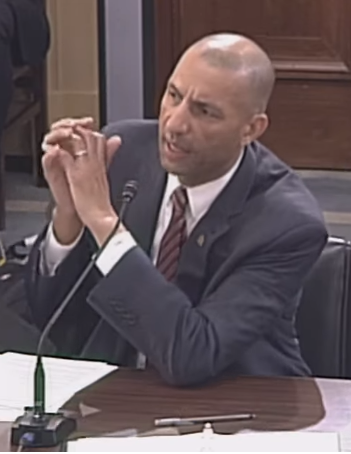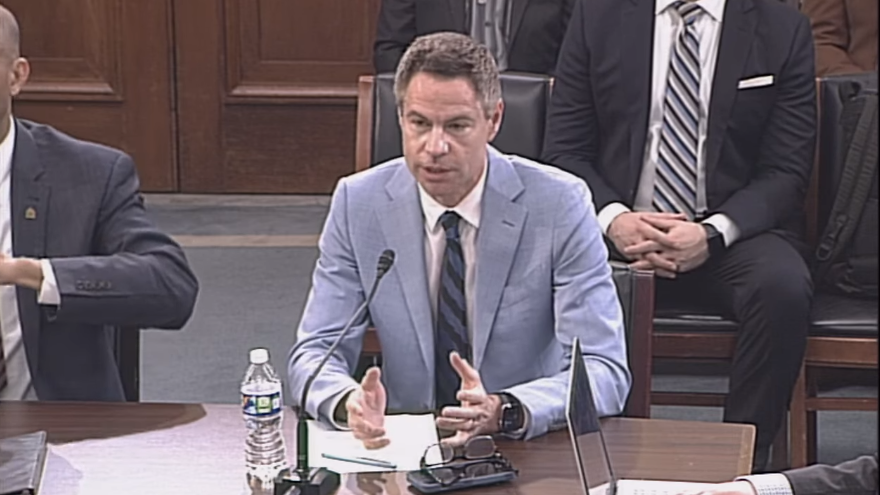Most recently known for his work on the Twitter Files, journalist, author, and former gubernatorial candidate Michael Shellenberger tells lawmakers that the government and big tech companies must announce their content moderation decisions and give censored individuals the right to respond.
Providing expert witness testimony today before the House Energy and Commerce Subcommittee on Communications and Technology during a hearing called “Preserving Free Speech and Reining in Big Tech Censorship,” Shellenberger testified that transparency on the part of big tech and government was needed when it came to issues of social and political censorship specifically.
Shellenberger’s testimony came as a response to collusion between big tech and government to censor “disfavored,” yet accurate information that went against official policies and narratives across a variety of social and political issues including COVID-19, transgenderism, climate change, and vaccines.
“If the White House is going to demand that Facebook censor accurate information about COVID vaccine side effects, which it did do, then it would need to immediately send an email to be posted on a website, be tweeted out, be put on Facebook that that’s what they did” — Michael Shellenberger
“When Twitter, Facebook, and Google censor people for expressing disfavored views on transgenderism, climate change, energy, vaccines, and other plainly social and political issues, they must immediately announce those content moderations’ decisions publicly and give the censored individuals the right to respond,” said Shellenberger.
“And to protect free speech from government, congress could require government contractors and government employees to immediately report any content and related communications they make to internet platforms.
“What I’m proposing is rather simple: if the White House is going to demand that Facebook censor accurate information about COVID vaccine side effects, which it did do, then it would need to immediately send an email to be posted on a website, be tweeted out, be put on Facebook that that’s what they did.
“And if Facebook is going to take down accurate information about side effects of COVID vaccines, it should be required to explain that it did that,” he added.
“The National Science Foundation is now funding 11 universities to create censorship predicates & tools that includes DARPA funding.
“That all needs to be defunded, dismantled, and an investigation needs to be done to figure out what’s going on” — Michael Shellenberger
When asked about the government’s failed attempt to create a disinformation governance board within the Department of Homeland Security, Shellenberger responded:
“Unfortunately, that disinformation governance board was just the tip of the iceberg of the Censorship-Industrial Complex.”
Part of that Censorship-Industrial Complex, according to Shellenberger, includes “the National Science Foundation [which] is now funding 11 universities to create censorship predicates & tools that includes DARPA funding.”
“That all needs to be defunded, dismantled, and an investigation needs to be done to figure out what’s going on,” he added.
Tuesday’s hearing also saw testimony from The Babylon Bee CEO Seth Dillon, Stanford University Professor of Health Policy Dr. Jay Bhattacharya, and George Washington University Law School Professor Spencer Overton.
Overton, for his part disagreed with the premise of the hearing.

“Private companies have a First Amendment right to exclude content as they see fit, and that they are not preventing ‘free speech’ or ‘censoring’ users when they engage in content moderation” — Spencer Overton
“This hearing’s framing, “Preserving Free Speech and Reining in Big Tech Censorship,” inaccurately presents the decisions of private platforms to ignore, de-amplify, flag, remove, or criticize certain content posted by users as censorship. In fact, such decisions are exactly what the First Amendment protects. Indeed, government attempts to threaten this right is censorship,” Overton submitted in his written testimony.
“Singling out so-called ‘Big Tech’ is moreover selective and misleading, as plenty of small companies have outsized influence on public discourse and cause serious harm,” he added.
According to Overton, “The larger point is that private companies have a First Amendment right to exclude content as they see fit, and that they are not preventing ‘free speech’ or ‘censoring’ users when they engage in content moderation.”












